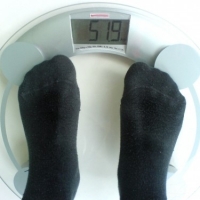Protein Requirements in Hospitalized Patients
Nutritional status is frequently impaired among hospitalized patients. It is widely agreed that routine hospital practices can further adversely affect the nutritional status of sick patients. There is no doubt that meeting protein requirements is a must, and a lack of protein has serious implications for health, recovery from illness or surgery, and hospital costs. Many body tissues are composed of proteins, and protein requirement is increased for many sick patients as their bodies recover from illness or injury.
Pathophysiology:
Protein energy malnutrition (PEM) is caused by starvation and it occurs often in hospitalized patients. It is the disease that develops when protein intake or energy intake, or both, chronically fail to meet the body’s requirements for these nutrients. PEM has always been a common disease, and humans have adaptive mechanisms for slowing and, in most cases, arresting its progress. Due to the reduction in energy expenditure, fat storage is amplified. The body accomplishes this by both reducing the metabolic rate per unit of the metabolically active tissues and by utilizing some of the body’s lean tissue (protein) store. This protein-depleted body also requires less protein. Muscle tissue has to bear this loss, whereas the central lean tissues like those of the liver, gastrointestinal tract, kidneys, blood and immune cells are spared. As long as this ratio of protein and energy does not go very low, the body may be able to adapt to this status and thus maintain homeostasis. This physiologic adaptation leads to lowered metabolic rate and also reduces the muscle mass. The consequences of this include muscular weakness, functional disability, reduced cardiac and respiratory capacity, and a reduced body protein reserve.
Factors that help maintain the nutritional status of a hospitalized patient:
1. Monitoring the patient’s weight (on admission and at least once a day during treatment)
2. Keeping track of the daily diet (types of food, amounts, by what feeding method, etc.)
3. Assigning one to one patient care (one nurse per shift should be responsible for the patient and encourage intake)
4. When providing prolonged administration of dextrose and electrolyte-containing solutions, protein supplements should also be provided to prevent dehydration and malnutrition.
5. Nutritional and protein supplements should be provided before the patient’s metabolism triggers a negative nitrogen balance.
6. Patients normally do not eat well in the hospital due to mental and organic stress. Concentrated sources of nutrition and proteins can ensure adequate intake in such situations.
7. It should be recognized that malnutrition has to be proactively addressed. Otherwise, it creates a medical problem of its own. Malnutrition is a major cause of preventable morbidity due to a depressed immune system, metabolic abnormalities, and organ failures.
Therapy:
The diagnosis of protein requirement in hospitalized patients should be made quickly. The recurrent examination is recommended as this can improve the patient’s outcome. In moderate to severe cases, even adequate protein provision may improve immune function and muscle function enough to improve the patient’s condition. Mobilization and exercise are essential for nutritional rehabilitation.
– Oral nutrition is safest, least expensive, and generally regarded as the best treatment for malnutrition.
– When nutritional needs cannot be met through diet, forced feeding (orally, using a syringe, tongue depressor, etc.) must be implemented.
– Parenteral nutrition (i.e. intravenous feeding through the gut) is indicated when the patient either cannot eat, or when the gastro-intestinal system cannot be used.
Hospitalized patients who have sustained a major burn or trauma, or chronic conditions like diabetes, cancer, etc. need protein supplementation. After these patients are discharged, they need extra protein until they have fully recovered. Thus, a protein rich diet is always generally indicated.
Such hospitalized patients require approximately 1.5 grams of protein per kilogram of body weight according to their weight, whereas normal adults require 0.8 grams of protein per kilogram. Meals offered at home or in the hospital may not offer enough protein to meet this requirement. Thus, protein supplementation is generally necessary.
The routes through which these protein nutrients are provided include modified oral diet, enteral nutrition by tube (i.e. providing nutrients to the gastrointestinal tract by tube), or parenteral nutrition. In the case of enteral tube nutrition, the formulas satisfy the energy needs, but are oftentimes lacking in proteins.
The need for milk proteins as supplements in hospitalized patients:
Passive immunization through food is unique to mammals, and we all receive this benefit at birth. Newborns are unable to make immunoglobulins. They receive this through the mother’s milk. Like newborns, patients with certain diseases are also unable to make their immunoglobulins, so they need to be supplied with such proteins. Among these are casein and whey protein. These proteins are not only of biological origin but these also help to augment the often-poor diet and have a significant effect on immune function.
Casein: Casein is a milk protein and is considered the major protein fraction of milk. Casein contains peptides that can influence gut motility, decrease gut emptying, and stimulate immune modulator activity. Also, casein ingestion has an important effect to preserve activity and aid in absorption of other biologically active peptides.
Whey: Whey is a byproduct of cheese and casein manufacturing. It contains approximately 20% of the original milk proteins. The biological activities of these proteins may become apparent after acidification or partial digestion. Biological activities include immune modulation, as well as anti-inflammatory and healing effects. A small human study has also suggested a beneficial effect of whey in patients with chemical-induced corrosive injury.
The protein deficit in hospitalized patients can be thus met with milk proteins like whey and casein through tube-feeding formula, orally, etc.
Hospitalized patients require an understanding of amino acids and protein requirements under special clinical conditions. Improvement of knowledge in this area and prompt diagnosis will help hospitalized patients with their specific protein requirements and thus will aid in medical care.
Protica Research (Protica, Inc.) specializes in the development of Capsulized Foods. Protica manufactures Profect, IsoMetric, Pediagro, Fruitasia and over 100 other brands, including Medicare-approved, whey protein supplements for weight loss surgery patients. You can learn more at Protica Research – Copyright
-
How to Have Fun While Losing Weight
Its fascinating how involved we (or about 40 percent of the Worlds pop
-
The Diet Solution Program - The Diet Solution Review
The Diet Solution program is a 180 pages ebook written by nutritionist
-
FatLoss4Idiots Review
You may have heard of a new diet plan known as Fat Loss For Idiots. Wh
-
Diet On What To Eat For Weight Reduction
Through every type of media today, the message
-
Use Laparoscopic Sleeve Gastrectomy to Get Back to Shape within a Short Time
Obesity, no doubt, is one of the major problems faced by people acros
-
Burn 500 Calories
The simplistic idea behind losing weight is bur
- DON'T MISS
- Slim Seduction - Six Week Body Makeover
- Role of fats in the body
- Everloss - Hate Low Carb & Low Fat Weight Loss Meal Plan?
- Getting Fit through Weight Loss Program in Maryland
- Most Effective Methods on How To Drop Weight Fast
- 5 Effective Tips to Increase Your Metabolism - How to Boost Your Metabolism and Lose Weight Easily?
- Beck Diet Solution Support Group
- How Much Exercise Needed for Maximum Weight Loss?
- Optometry Practice Management Can Be the Best Option
- Capsiplex Reviews: For Helping People Know How it Burns Fat




